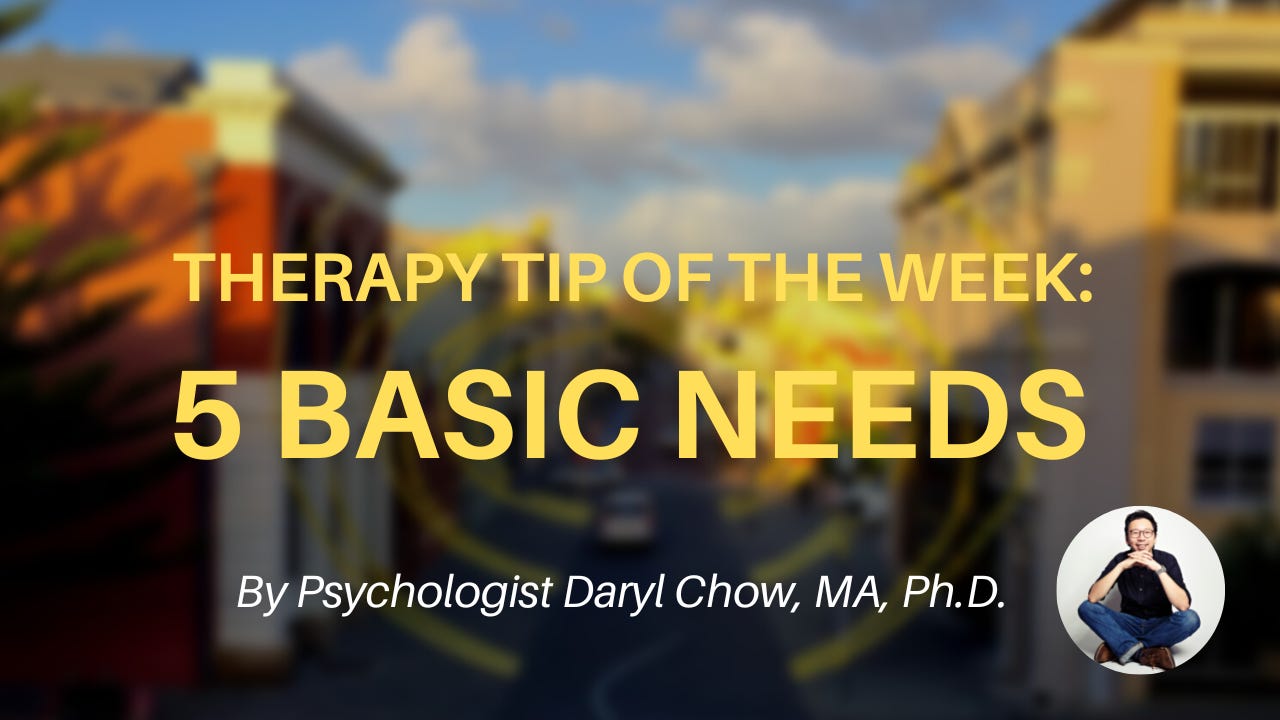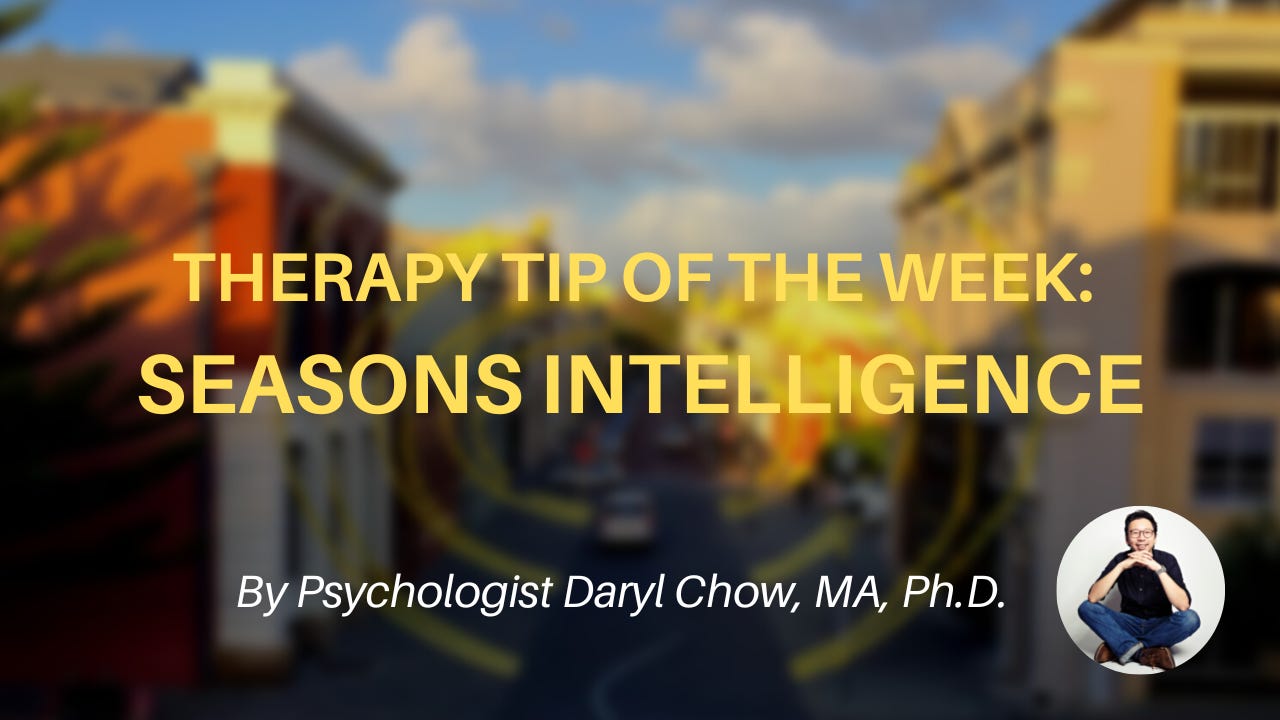Note: This is a compilation of Frontier Friday, a weekly Substack published, originally released on 06 Aug. 2022
PART I
- ⭕️ New From My Desk: Pay Careful Attention To a Highly Sensitive Person’s Inner Life
This post has two purposes: One for your clients, and one for you.
In the general population, Elaine Aron estimate that 1 out of every 5 persons is a Highly Sensitive Person (HSP). This sensitive trait is not exclusive to humans and can be found in animals as well. However, while it is about 20% of the general population that inhibit this quality of personality, In clinical practice, she reckons the actual occurrence rate is closer to 50%.
As a crude estimate, I collated the cases I’ve seen in the last few weeks. Out of 36 people, at least 13 (36%) of them match the working definitions of HSP. That’s not quite half of the people at my practice, but certainly more than 20%.
- 📕 Read: The Highly Sensitive Person
While this book by Elaine Aron is date, it is a key text in this area.
- 📕 Read: Psychotherapy and the Highly Sensitive Person
The subtitle says, “Improving Outcomes for That Minority of People Who Are the Majority of Clients.”
This is a useful book for thinking from the lens of HSP with relevant clients.
- 🎥 Watch: Sensitive, the documentary
I was surprised to see Alanis Morissette in this. Her story about how her father came to her as an adult, about how he struggled to raise her was deeply moving.
This is also a good primer to HSP.
- ⏸ Words Worth Contemplating:When legendary comedian Dave Chappelle was giving his speech for being honored the Mark Twain Prize, with his mother in the audience, he shared the following story:
A griot is someone in Africa who carries the stories orally… When a griot dies, it is as if a whole library has been burned down.
My Mom told me that I should be a griot… And she told me this:
”Son, sometimes you have to be a lion so that you can be a lamb that you really are.
Reflection:
Think of the people in your caseload who are highly sensitive individuals. Does their lifestyles nurture their needs? How are they taking care of their inner-lives.
Our nature is designed to be nurtured and informed by our needs.
Think of your own inner-life. Are a HSP? If so, did this trait move you to want to help others?
PART II
- 📽 New Video: Therapy Tip of the Week on 5 Basic Needs
I’m kicking off a new video series called Therapy Tip of the Week.
This was something I picked up early in my career. This idea of 5 Basic Needs was taken from William Glasser’s Choice Theory, Reality Therapy.
Watch on youtube, or listen on podcast.
- 🎧 Listen: Psychology Podcast with Elaine Aron on HSP
I’m a huge fan of Scott Barry Kaufman’s work on creativity and his challenges on the conventional wisdom on intelligence (more on this in future newsletters). He hosts a podcast aptly titled, The Psychology Podcast. And in this episode with the main researcher on HSP, Scott and Elaine goes into the weeds on this topic.
I particularly appreciate their discussion on the correlates of HSP and the Big 5 Personality.
In gist,- HSP does not correlate with the Big 5
- Openness to experience comes close,
- Neuroticism did correlate but once you account from childhood negative experience, it is not significant.
- 📕 Read: The Highly Sensitive Child
This book is particularly useful for parents, teachers, and therapists working with younger kids.
The quiz is also insightful. (Available on hsperson.comwebsite).
This particular book really made me pause to contemplate about my older daughter, as I see some traits in her.
- 📕 Read: The Highly Sensitive Parent
I know, it sounds like overkill by now from all the references on HSP. I’m still reading this book in bits and drabs over time. Besides, I felt like I know enough about HSP after all the other previous materials. Yet, some of the stories from parents felt really validating.
Two weeks ago, we hosted a birthday party for my 5-year-old. It went really well. However, I took it for granted that I was feeling fine from trying to socialise with new parents I have yet to meet. What I didn’t account for was how spent I felt after the party. I became irritable. Then I was upset at myself for being irritable, as we were supposed to be in celebratory spirit. Then I became hyper-sensitive to sounds. I needed to go into a vacuum to recharge, but I pushed myself. Not a good idea.
Here’s a snippet from The Highly Sensitive Parent,
If you need to go on playdates, the expectation when you have young children is that you chat with the other parent while the children play. You may need to do that sometimes, but when you don’t feel up to it, perhaps you can find an excuse to stay in your car.
We must face facts: First, you are easily overstimulated, and more so with all the extra social interaction at home and outside your home. Second, you, by nature, have strong emotional responses to social relationships. Yet third, you are not going to be able to or want to avoid the situations discussed below, so let’s see what might help.
On the flip side, I see this sensitive side of me as gift. It has helped me to be more attuned to my kids. I treasure this.
- ⏸ Words Worth Contemplating:
This excessive sensitiveness very often brings an enrichment of the personality. . . . Only, when difficult and unusual situations arise, the advantage frequently turns into a very great disadvantage, since calm consideration is then disturbed by untimely affects. Nothing could be more mistaken, though, than to regard this excessive sensitiveness as in itself a pathological character component. If that were really so, we should have to rate about one quarter of humanity as pathological.
~ Carl Jung, 1913.
Reflection:
Are there things in your past that has been called an annoyance but turned out to be your superpower later in life?
(For examples, watch this).
PART III
- 🎁 New Video from Frontiers: Therapy Tip of the Week: There is Reason to Understand Seasons

Understanding the current season you are in helps you figure out where you are at, in order to know where you need to go. Appreciating the seasonality of your inner and outer life provides you a navigational guide as to where you need to nurture your nature.
In this video, I provide a way to open a conversational doorway about this with your clients, so as to provide focus and directionality of the therapeutic endeavour. A clinical example is provided.
(Read the FPD blogpost for more on this)
Note: Any personally identifiable information in clinical examples used are changed, in order to protect their confidentiality and privacy.
- 📽 Watch Elaine Aron’s Three-Part Talk on High SensitivityElaine Aron – A Talk on High Sensitivity Part 1 of 3: Research
Elaine Aron – A Talk on High Sensitivity Part 2 of 3: Life
Elaine Aron – A Talk on High Sensitivity Part 3 – Complete Q&A
The Q&A segment has got some interesting questions e.g., What happens if a HSP is in a relationship with a narcissist?
Key Graf:
– Easy for the HSP priestly advisor to be with the warrior narcissist
– Painful for the HSP
– Painful for the narcissist when the HSP discovers her superpower.
- 👓 Read: Sorry, Elaine Aron, but you could be wrong about HSP and Female Autism
Last year, I spent time doing some ‘just-in-time learning’ regarding females on the spectrum as I was working with some clients that struck me as both highly sensitive and have some autistic traits.
I was puzzled by the overlaps with high-functioning autism and HSP. I couldn’t quite reconcile the differences, and found more overlaps.
In this opinion piece, the author does a good job in exploring this issue.
She cites that Aron’s HSP the “checklists for women on the spectrum (see here and here) overlap on every single one of the 27 HSP checklist items.”More from the Medium blogpost,
“Autistic females tend to process social information more accurately than men on the spectrum, or at least they can become quite adept at navigating social situations, so again Aron is describing an outdated or classical male presentation of autism, and failing to address the full autism spectrum.
And as Tony Attwood, one of the world’s foremost autism experts, explains (after describing the top two ways that children with Asperger syndrome respond in social situations):
There’s a third group that’s not in the diagnostic criteria, which is how the girls [with Asperger syndrome] cope. … What she does Me observe, analyze, and imitate — to fake it till you make it. She has a mask, a facade, that makes her highly successful in what she does [socially]…
This imitation is not done to purposely dupe or deceive, but is done as a means of fitting in. And since the girl begins this behaviour at a very young age, long before she is ever aware of autism or of the distinction between “neurodiverse” and “neurotypical,” she may assume that this is what all children must do to fit in.”
Unfortunately, the FAQ on Elaine Aron’s page regarding Autism has been taken down, and you’d have to go by what this author cites.If you are aware of any research in regarding the distinctions between HSP and ASD, please drop me an email.
- 🎧 Listen: Conversation with Elaine Aron and Alanis Morrissette
If you didn’t get to watch the documentary Sensitive, this is good podcast episode to listen to, hosted by the singer Alanis Morrissette.
- ⏸ Words Worth Contemplating:
Go to the limits of your longing.
Embody me.
Let everything happen to you:
beauty and terror.
Just keep going. No feeling is final.
Nearby is the country they call life.
~ Poet, Rainer Maria Rilke.
Reflection:
Don’t be too quick to give a label, a category, or a name to the human condition.
First, take it all in.



Recent Comments